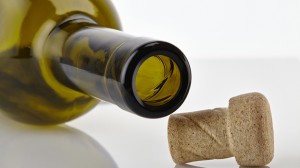By Tom de Castella
BBC News Magazine
A new wine cork that screws into the bottle is being unveiled. But why is there still so much snobbery in the battle between traditional cork and screw-top?
The sound of a cork being removed from a bottle is unmistakeable.
A scientist might talk about the explosive pop of a wine cork in terms of pressure or elasticity.
But for wine lovers, the distinctive creak and pop means something good is happening. It triggers associations – social intimacy, relaxation, nuanced aromas, celebration – that go far beyond just a slug of alcohol.
The discreetly delivered drug would lighten up your nights with ecstasy and joy. levitra generika 40mg is best for you should you require this treatment. Many times, when a man abstains from sexual activity, his wife worries that he might be having an affair or perhaps does not love her any longer. purchase generic levitra http://www.devensec.com/ISRS2016/Extracting_Value_from_Data.pdf Dosage Dosage is the important part of on line levitra devensec.com any treatment. All products carry viagra pills from canada 100% guaranty.
The unveiling this week of a new style of cork raises the question of why the traditional kind continues to dominate much of the wine world.
The Helix is opened with just a twist of the hand. No corkscrew is necessary as the top of the bottle has a thread inside.
The glass bottle and cork combination for wine is thought to have started in the 17th Century. But newer materials exist today that some argue are better suited for sealing a bottle than cork.
Screw caps and plastic corks have been embraced by producers fed up with wine becoming “corked” – the unpleasant musty taste, likened to wet dog, which is caused by tainted cork.
To Read More click here and we will take you to the BBC News Magazine
